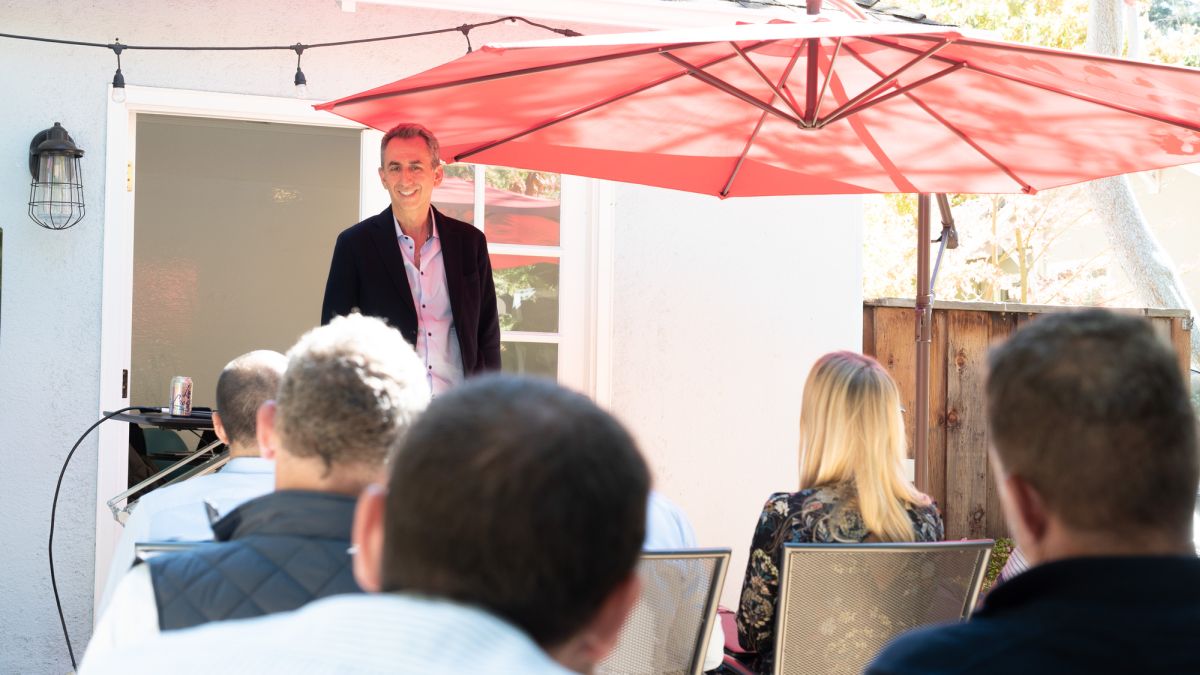
In addition to meetings with investors and potential business partners, this week the winners of the Swisscom Startup Challenge in Silicon Valley also hold meetings with successful entrepreneurs. On Monday, Alain Chuard, founder and former CEO of Wildfire, and Sam Heidari, former CEO of Quantenna, talked about success and agreed on the importance of soft factors.
Just a few months ago, Quantenna was sold to On Semiconductors for more than USD 1 billion. This week, former CEO Sam Heidari stood in front of the winners of the Swisscom Startup Challenge and told his story. Quantenna is one of the US companies with which Swisscom worked and in which Swisscom Ventures invested early on. Heidari is convinced that the success of a start-up is based on three pillars: market, product and team. In his speech, he focused on the soft factors and talked about the team.
The entrepreneur said that it took him several years to understand how to run a business –management books did not help. He was long convinced that the well-known successful CEOs of US start-ups and large companies were so different that it was impossible to derive lessons from their leadership behaviour. A counsellor finally drew his attention to the fact that despite their differences, these bosses had one thing in common: they all had principles that they had never compromised. So Heidari began to write down his own principles.
Another speaker, Swiss entrepreneur Alain Chuard, founder and former CEO of Wildfire, also sold his company successfully – to Google, which spent USD 450 million in 2012 on the acquisition. He also emphasised in his speech the great role played by corporate culture. “Company culture is the glue that holds the company together,” he said. This is particularly true for fast-growing companies. In practice, for example, this meant that Wildfire did not rely on headhunters, but sought new employees through its own recruitment team, which knew the culture and was able to select suitable candidates.
At Quantenna as well, candidates were informed throughout the recruitment process of the company’s principles and culture, and to which they had to commit themselves. Of course, many of the principles and guidelines sound like a start-up, such as the pursuit of ongoing innovation and excellence in execution, and not claiming credit for work done by others, but only for that for which an employee is truly responsible. Heidari is convinced that the clear principles and rules led to less office politics and fewer confrontations.
There are also clearly measurable results. Quantenna always performed well on online employee rating portals and had a much lower turnover rate than comparable companies, not only in the US but also at its subsidiary in China.
Chuard also emphasised the benefits of a strong corporate culture. One of the reasons why his company grew so fast was because employees recommended the company to potential candidates. And Chuard ensured that this culture was transferred to the new branches, which were built by employees who had worked at the headquarters for a long time and were therefore very familiar with the culture.
Both are convinced that soft factors are also important in the success of Silicon Valley as a whole. “The fact that founders and team members are particularly hungry for success plays a major role in Silicon Valley’s unique position,” said Heidari.























































Please login or sign up to comment.
Commenting guidelines